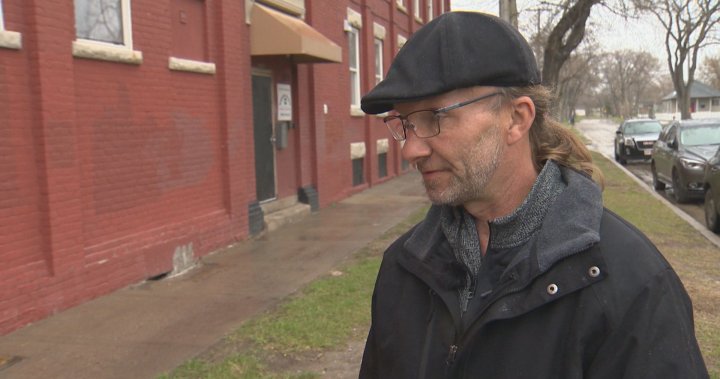Darrin Wright, a Manitoba man, was brutally attacked in Winnipeg’s North Point Douglas neighbourhood nearly three years ago, leaving him with severe injuries to his face. The attack occurred when he was helping a friend pick up his bike that had been kicked over by a person in a drug-induced episode. Wright was hit in the face with a wrench, resulting in life-altering injuries, including the loss of 40% of his vision in one eye. He has undergone reconstructive surgery and continues to struggle with pain and migraines. The impacts of his injuries have led to him being on disability, unable to drive, and losing his property south of Winnipeg. Despite applying for compensation for victims of crime, Wright is still waiting for answers and assistance.
Wright has expressed dissatisfaction with the support he has received as a victim of crime. While victim services covered the cost of replacing his clothes and partially covered the cost of new glasses, he feels that the assistance provided is inadequate. He has faced lengthy wait times for reimbursement of out-of-pocket expenses for medical tests and struggles to cover the costs upfront. Wright’s experience is not uncommon, according to Jeffrey Bradley, a PhD candidate in Legal Studies at Carleton University. He explains that many survivors of crime in Canada do not receive the necessary services and support they require, leading to unaddressed trauma and a sense of disconnection from the community.
The lack of adequate support for victims of crime can have a significant impact on individuals like Wright. They may feel isolated, traumatized, and overwhelmed by the challenges they face in the aftermath of a crime. Victim services are meant to be a lifeline for those in need, but due to funding limitations and short-term assistance, many struggle to get their lives back on track. Bradley emphasizes the importance of addressing the needs of survivors and ensuring that they receive the necessary help to heal and move forward. Victims like Wright are seeking more comprehensive support to rebuild their lives and recover from the physical and emotional toll of their experiences.
In response to concerns raised by victims like Wright, the province of Manitoba has stated that between 2021 and 2023, 2,000 people applied for victims of crime compensation, with nearly $5.5 million distributed. Victims who are permanently impaired may also be eligible for a permanent impairment award, though the process can be lengthy to allow for medical procedures and healing. Wage loss benefits are considered for victims who are employed or self-employed at the time of the incident and are unable to return to work. Additionally, compensation for specific items such as dental, medical equipment, or eyeglasses may be arranged for direct billing to avoid upfront costs and reimbursement delays.
Wright is determined to get his life back on track and hopes to return to work. He is sharing his story in the hopes of raising awareness and advocating for better support for victims of crime. He believes that more assistance should be available to help individuals like himself rebuild their lives and overcome the challenges they face. While victim services may provide some immediate support, there is a need for more comprehensive and specialized services to address the long-term impact of crime on survivors. By sharing his experience, Wright is striving to create positive change and ensure that victims receive the help and resources they need to heal and recover.


